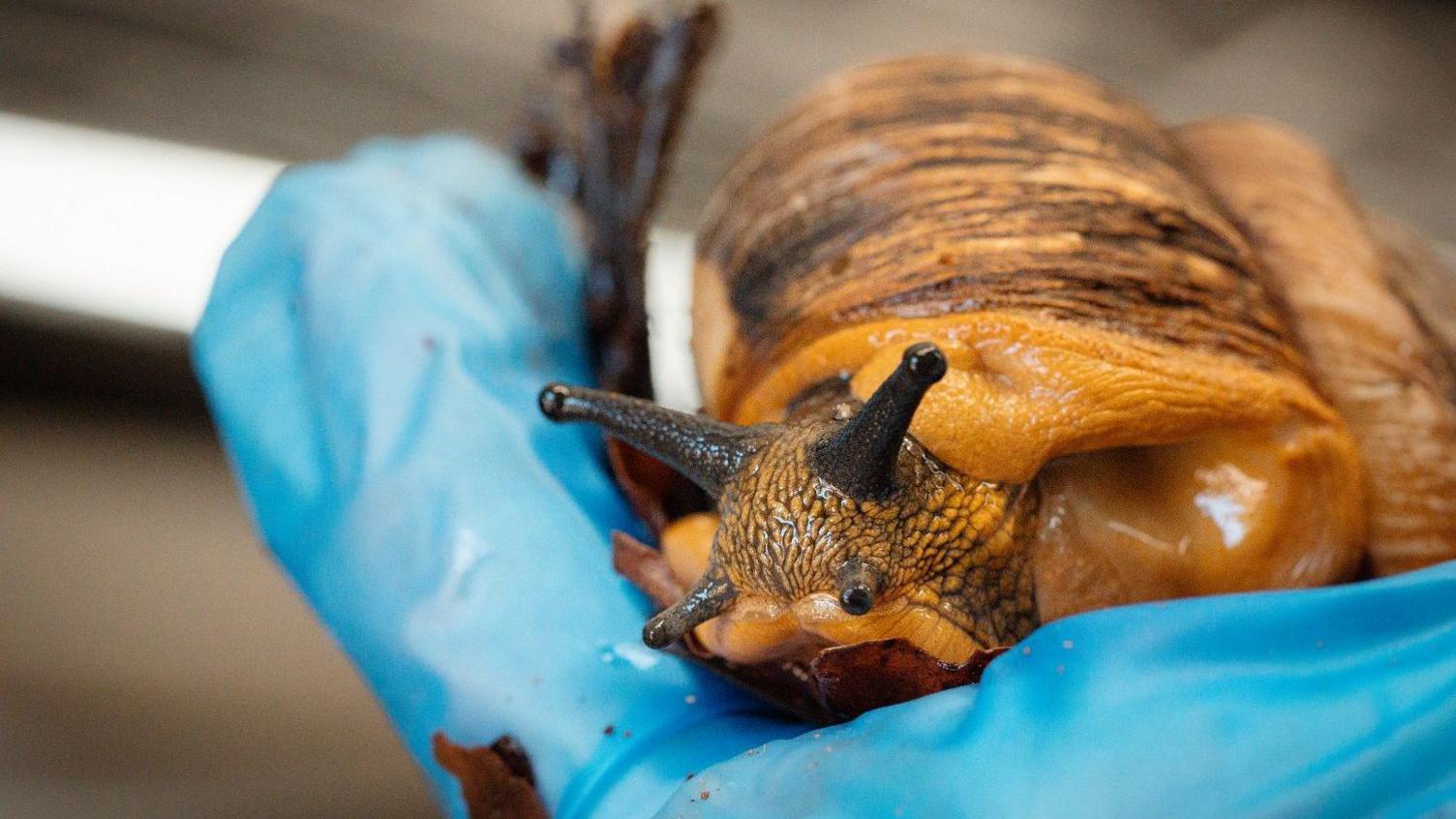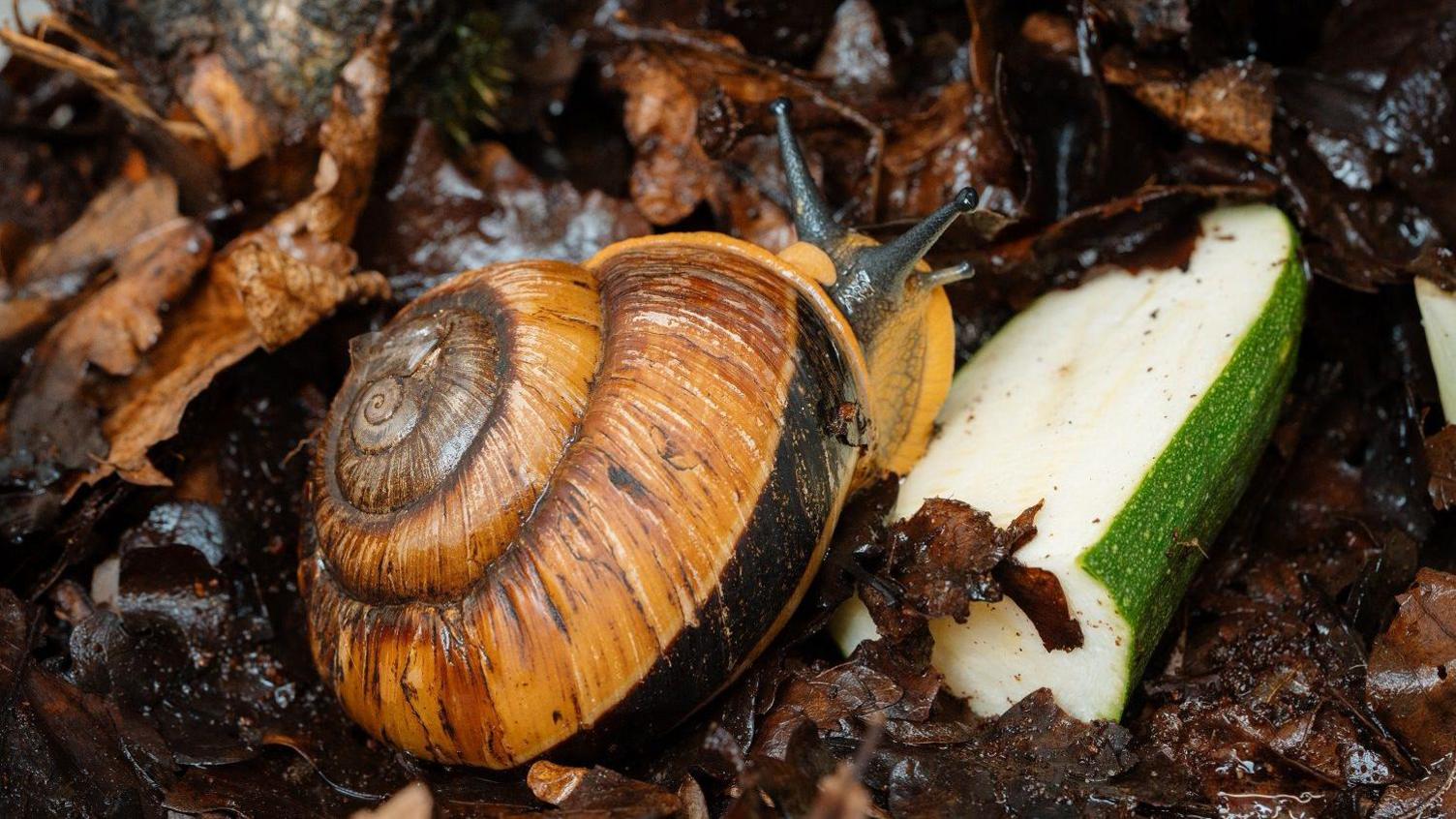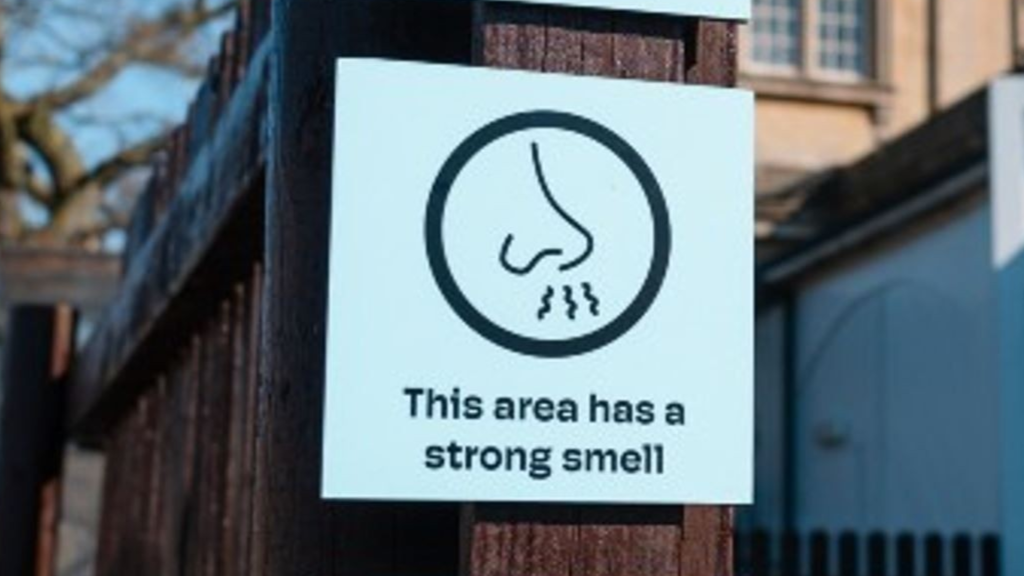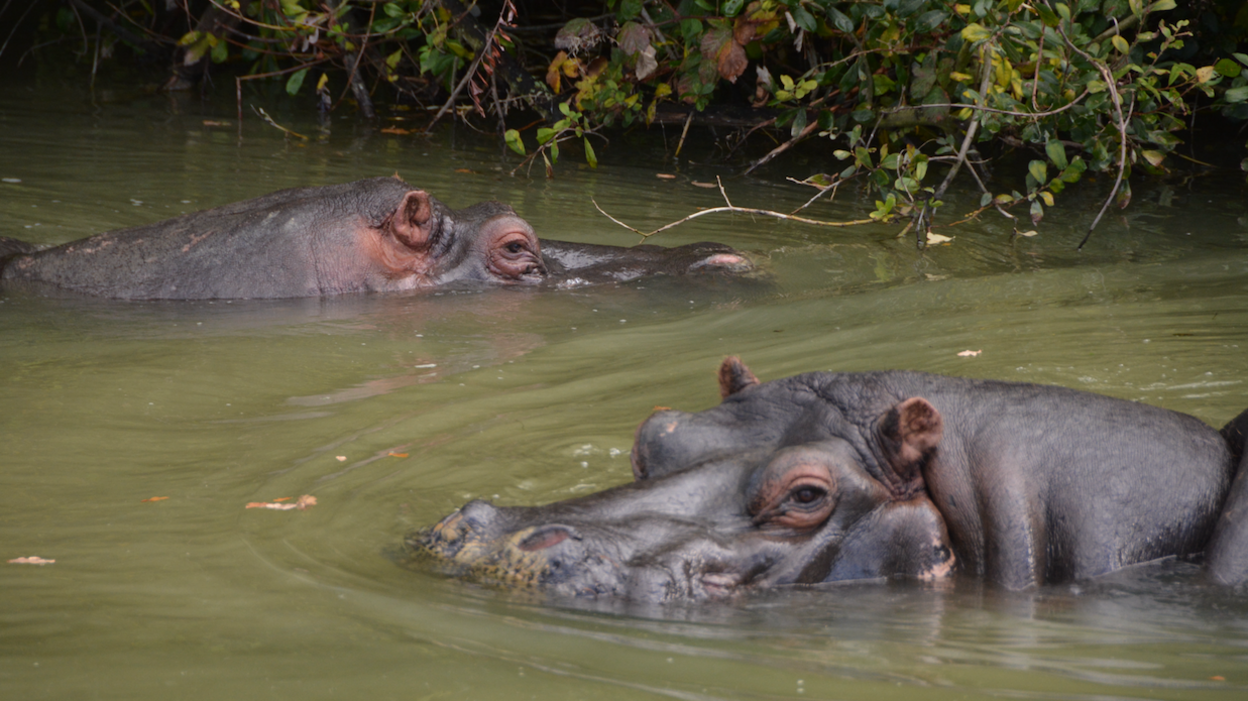Hopes critically endangered snails breed at safari park

The giant magnolia snail was thought to be extinct until they were found again in 2012
- Published
Critically endangered snails have arrived at a UK safari park, where conservationists hope they will breed.
Eight giant magnolia snails, which can grow up to 6.5cm long, are settling into their new home at Longleat, Wiltshire. Experts believed the creature was extinct until they were re-discovered in southern Vietnam in 2012.
There are thought to be only about 300 left in the world, with 56 snails in European zoological collections.
Keeper Samantha Peeke said: "The biggest threat to their survival is being used for food and the shell trade. We are hoping they will start breeding, which will be incredible for the species."
Longleat keeps them in a sterile environment, each with an ID tag, at temperatures of 23C (73F) to 27C (80F).
While not much is known about what they eat in the wild, Ms Peeke said they are being given lots of fruit and vegetables, with "mango being a favourite".
"They are weighing in at around 100 grams (3.5 ounces) with our biggest 66mm and are two and a half years old, so at the right size and age for breeding," she explained.

It's not known what the favourite snacks are in the wild, but they are enjoying vegetables at Longleat
The snails will soon be on display to the public in the Animal Adventure area of the safari park, which is well-known for the BBC's Animal Park series.
"They are beautiful animals and having them at Longleat is wonderful as we can show our guests how we care for all animals, whatever their size," Ms Peeke added.
Get in touch
Tell us which stories we should cover in Wiltshire
Follow BBC Wiltshire on Facebook, external, X, external and Instagram, external. Send your story ideas to us on email or via WhatsApp on 0800 313 4630.
Related topics
More stories like this
- Published21 March

- Published6 February
